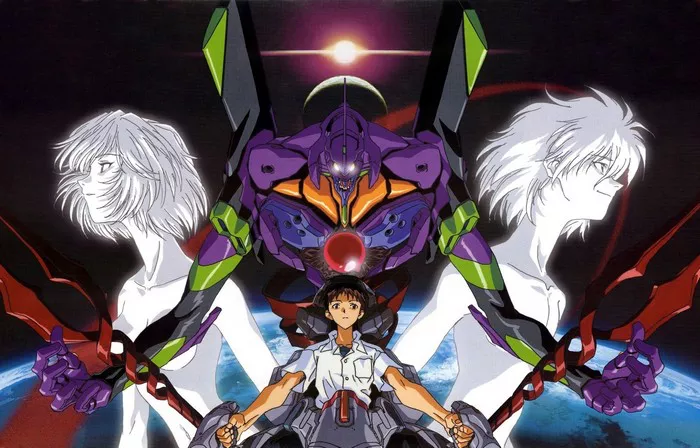Neon Genesis Evangelion is a seminal anime series that delves deep into the psychological and emotional complexities of its characters, particularly its protagonist, Shinji Ikari. Shinji’s struggles with his identity, purpose, and relationships are central to the narrative, prompting many viewers and critics to explore the theme of mental health within the series. This article aims to provide a detailed analysis of whether Shinji Ikari suffers from clinical depression, examining his behavior through the lens of psychological theory and the socio-cultural context of the show.
Understanding Shinji Ikari
Character Background
Shinji Ikari, the main protagonist of Neon Genesis Evangelion, is a 14-year-old boy who is summoned by his estranged father to pilot a giant bio-machine mech called an Evangelion to fight mysterious beings known as Angels. Shinji’s reluctant acceptance of this role sets the stage for his emotional and psychological challenges throughout the series.
Personality Traits and Behaviors
Shinji displays many behaviors and traits that are characteristic of someone experiencing profound psychological distress. He often appears withdrawn, exhibits low self-esteem, and struggles with feelings of worthlessness and a pervasive sense of guilt. These elements are crucial in assessing his mental state and form the basis for further analysis regarding depression.
Depression: A Clinical Overview
Defining Depression
Depression is a common and serious medical illness that negatively affects how a person feels, thinks, and handles daily activities. Symptoms must be present for at least two weeks to be diagnosed clinically and include persistent sadness, loss of interest in activities, changes in appetite, trouble sleeping, loss of energy, and feelings of worthlessness or excessive guilt.
Symptoms Related to Shinji
Many of Shinji’s displayed behaviors align closely with the symptoms of clinical depression. His reluctance to form relationships, persistent doubts about his self-worth, and his overall demeanor suggest a deep-seated melancholy and lack of pleasure in life, both hallmark symptoms of depression.
Psychological Analysis of Shinji’s Behavior
Response to Stress and Trauma
Shinji’s life is fraught with stress and trauma, from the abandonment by his mother and father to the immense responsibility of piloting the Evangelion. His responses to these stressors—withdrawal, anxiety, and emotional numbing—are indicative of depressive reactions to prolonged stress and trauma.
Interpersonal Relationships
Shinji’s interactions with other characters, such as Rei, Asuka, and his father, Gendo Ikari, further illustrate his struggles. He often exhibits a fear of intimacy and rejection, avoiding close relationships to protect himself from further psychological pain. This behavior aligns with the avoidance symptoms of depression.
Existential and Identity Crises
A significant portion of Shinji’s psychological conflict revolves around an existential crisis. He continuously questions his worth and the meaning of his existence, which are exacerbated by the expectations placed upon him as an Evangelion pilot. This existential dread can be a contributing factor to depressive disorders.
Cultural Context and Its Impact
Japanese Society and Mental Health
The portrayal of Shinji’s character must also be viewed through the lens of Japanese cultural attitudes towards mental health and societal roles. Japan’s collectivistic culture, which emphasizes group harmony and conformity, may also play a role in Shinji’s mental health struggles, as he feels the acute pressure to align with societal expectations and his father’s demands.
The Creator’s Perspective
Hideaki Anno, the creator of Neon Genesis Evangelion, has openly discussed his own struggles with depression, which significantly influenced the series. Anno’s experiences are reflected in Shinji’s character, making a strong case for the portrayal of depression through a semi-autobiographical lens.
Impact of Shinji’s Depiction on Viewers
Relatability and Reception
Shinji’s character has resonated with many viewers, particularly those who see aspects of their own mental health struggles reflected in his experiences. This relatability has sparked broader discussions about depression and mental health in younger populations.
Criticism and Controversy
While Shinji’s portrayal has been praised for its depth and realism, it has also faced criticism. Some argue that his character is excessively whiny or passive, highlighting a divide in audience empathy and understanding of depressive behaviors.
Conclusion
Shinji Ikari’s character in Neon Genesis Evangelion presents a compelling case study of depression within the context of a complex narrative and cultural framework. His symptoms and behaviors align well with clinical definitions of depression, supported by the socio-cultural pressures of Japanese society and the personal influences of the show’s creator. Shinji’s portrayal serves not only as a mirror reflecting the creator’s personal experiences but also as a broader commentary on the challenges of adolescence and the impact of societal expectations on mental health.
The exploration of Shinji’s mental state offers invaluable insights into the representation of psychological disorders in media and their interpretation by diverse audiences. As mental health continues to be a vital topic of discussion, the character of Shinji Ikari remains a poignant example of how media can influence and reflect societal attitudes toward depression and psychological well-being.


